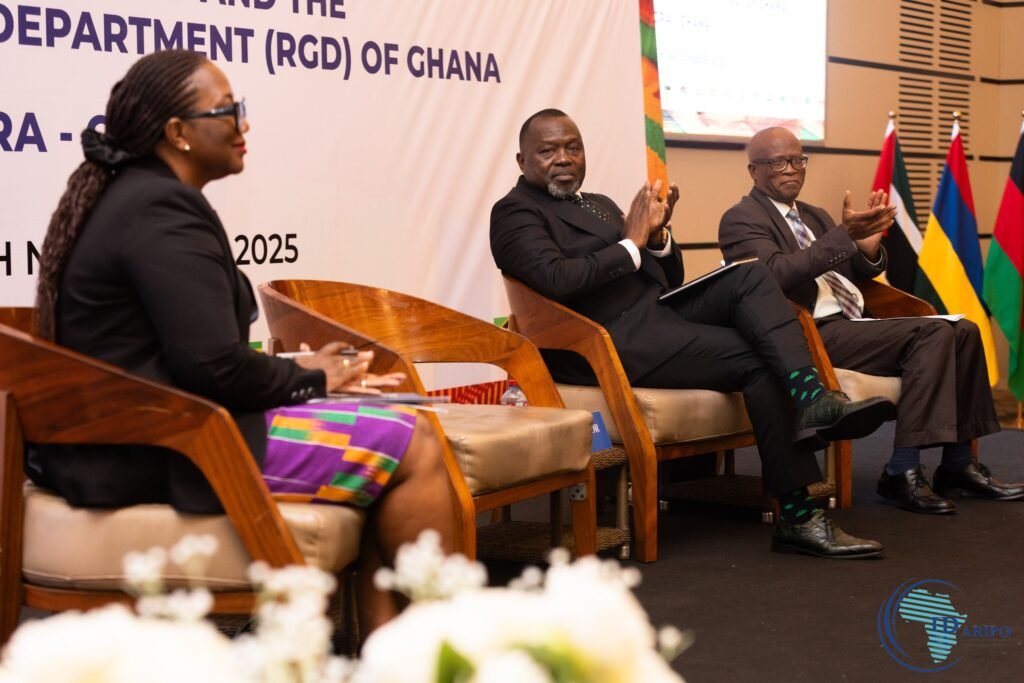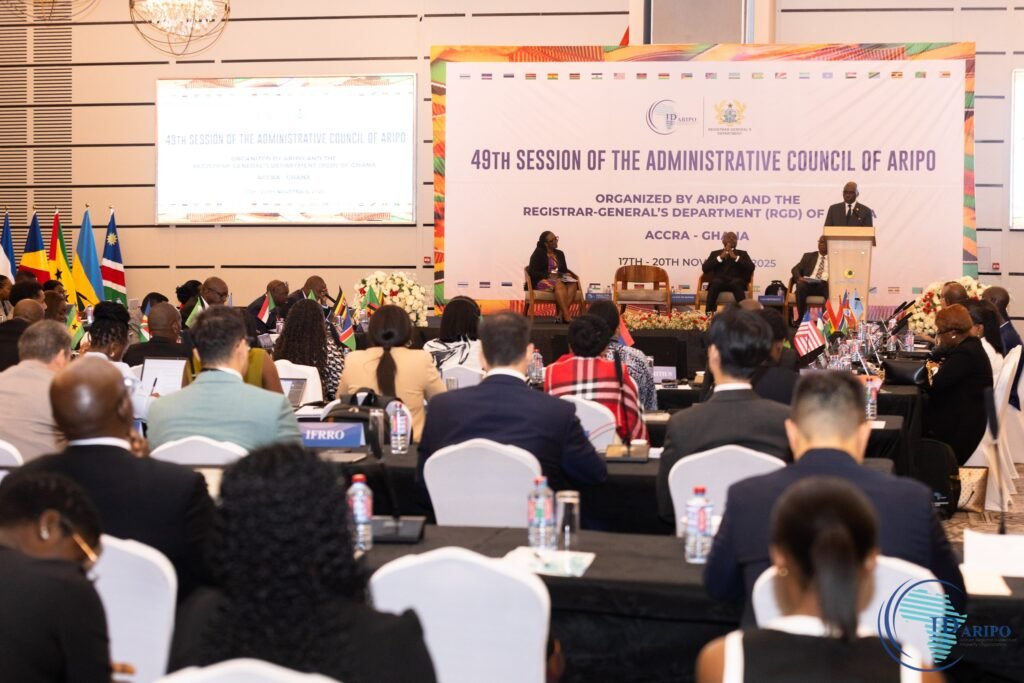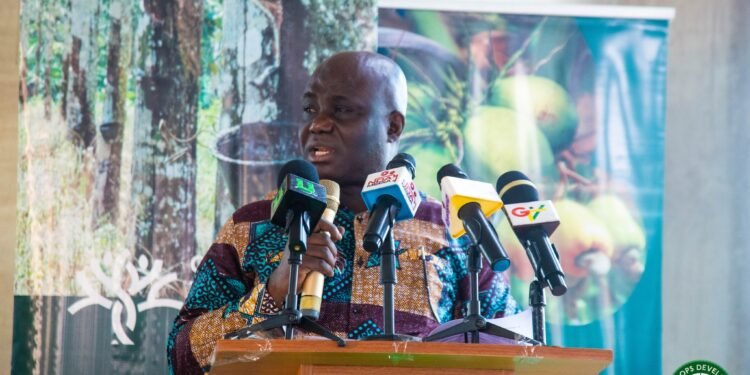Ghana has launched a significant overhaul of its intellectual property (IP) regime, introducing major digital reforms aimed at enhancing transparency, accelerating service delivery, and broadening access for innovators and Small and Medium Enterprises (SMEs).
The reforms were unveiled by the Minister for Justice and Attorney-General, Dr. Dominic Ayine, during the 49th Session of the Administrative Council of the African Regional Intellectual Property Organization (ARIPO) currently being hosted in Accra.
Dr. Ayine highlighted that the current system’s long-standing delays and inefficiencies would be resolved through the introduction of new online filing platforms for trademarks, patents, and other IP assets.
“These system upgrades are specifically designed to slash processing times, significantly boost efficiency, and simultaneously lower compliance costs for applicants. This modernization drive is viewed as critical to helping technology-based SMEs more easily access capital and grow their enterprises”
Dr. Dominic Ayine, Minister for Justice and Attorney-General
The Minister explained that the drive is anchored in a “clear commitment to build efficient systems that empower innovators, creators, entrepreneurs and rural producers.” The national IP policy is undergoing a comprehensive review that specifically focuses on key areas to maximize the economic value of IP assets.
The Attorney-General detailed that the policy review will focus on the commercialization of IP assets, enhancing enforcement mechanisms, strengthening Technology and Innovation Support Centers (TISCs), and fortifying the links between the IP regime and the country’s burgeoning creative and vital agricultural sectors.

“The country’s intellectual property reform agenda is moving with purpose,” Dr. Ayine stated.
Furthermore, the Minister for Justice revealed that the government has advanced the Ghana Industrial Property Office Bill to establish a dedicated national IP office. This institutional change is expected to further shorten processing times and substantially boost user support across the nation.
Protecting Cultural and Agricultural Assets
A central pillar of Ghana’s modernization agenda is the aggressive pursuit of Geographical Indications (GIs).
Dr. Ayine revealed that the Registrar-General’s Department is actively engaged with stakeholders to formally register key indigenous products – namely shea butter, Bolgatanga baskets, and the sugarloaf pineapple – as GIs.
He explained that this initiative is part of the larger agenda to modernize the industrial property ecosystem, positioning it as a direct catalyst for industrialization, export diversification, and better rural livelihoods.
He added that Ghana has already achieved success in this area with the official registration of Kente and the traditional spirit APIO as recognized GIs, and was only broadening the scope.
The Minister also highlighted recent legislative milestones, including the entry into force of the Plant Variety Protection Act, which is aimed at safeguarding plant breeders’ rights and attracting investment in the agricultural sector.
“For IP to truly drive development, it must be understood and valued by society as a whole,” Dr. Ayine stressed, calling on member states to accelerate accession to key regional instruments, particularly the Arusha Protocol on Plant Variety Protection.

ARIPO Commends Regional Leadership
The Accra meeting also served as a venue for regional cooperation, with the Registrar-General of Ghana, Mrs. Grace Issahaque, emphasising that IP offices play a critical role in supporting innovation across the African region.
She noted that the discussions would help shape the future of IP administration across the continent and reinforce ARIPO’s leadership role.
The Director General of ARIPO, Mr. Bemanya Twebaze, commended the progress achieved by member states in areas such as legal reforms, digital transformation, and capacity building.
He specifically lauded Ghana’s leadership and long-standing commitment to regional IP development, describing the registration of Kente as a GI as a landmark that “effectively blends cultural preservation with economic empowerment.”
Mr. Twebaze confirmed that ARIPO’s Strategic Plan (2022 – 2026) is over 80 per cent implemented, with reforms in digitization, governance, and operational efficiency yielding strong results, evidenced by the rise in patent and trademark filings.
“The achievements reflect the collective commitment of member countries to strengthening Africa’s IP ecosystem,” said the Director General of ARIPO, Mr. Bemanya Twebaze.
Ghana’s Attorney-General stressed that the country’s reforms are designed to fully leverage pooled regional resources, which, through ARIPO’s frameworks like the Harare, Banjul, and Arusha Protocols, are vital for the benefit of Africa’s youth, SMEs, and knowledge-driven sectors.

The overall goal is to modernize the industrial and intellectual property ecosystem to support national transformation.
READ ALSO: COP30 in Belém Expected to Deliver a Defining “Belém Package” – Cedric Dzelu























